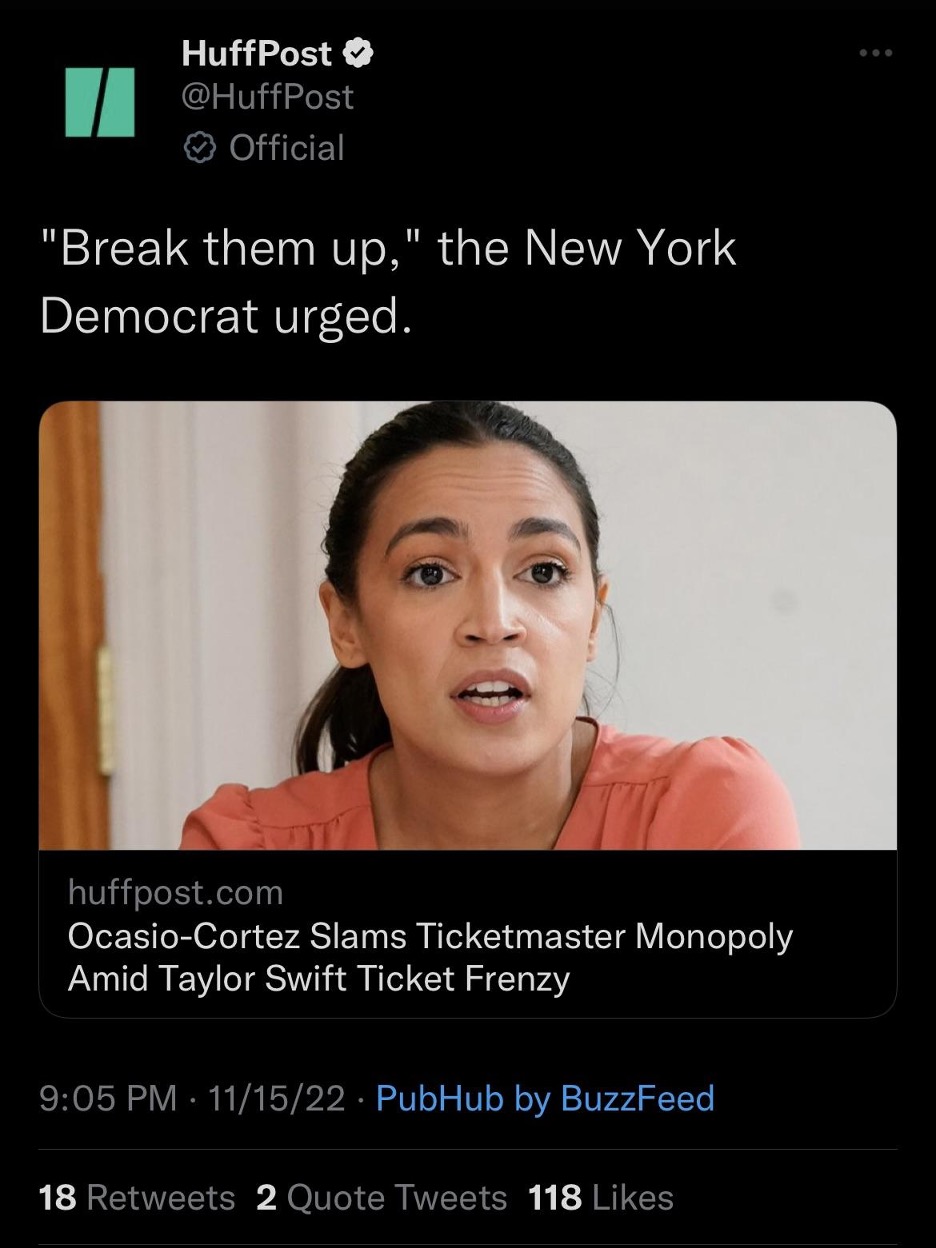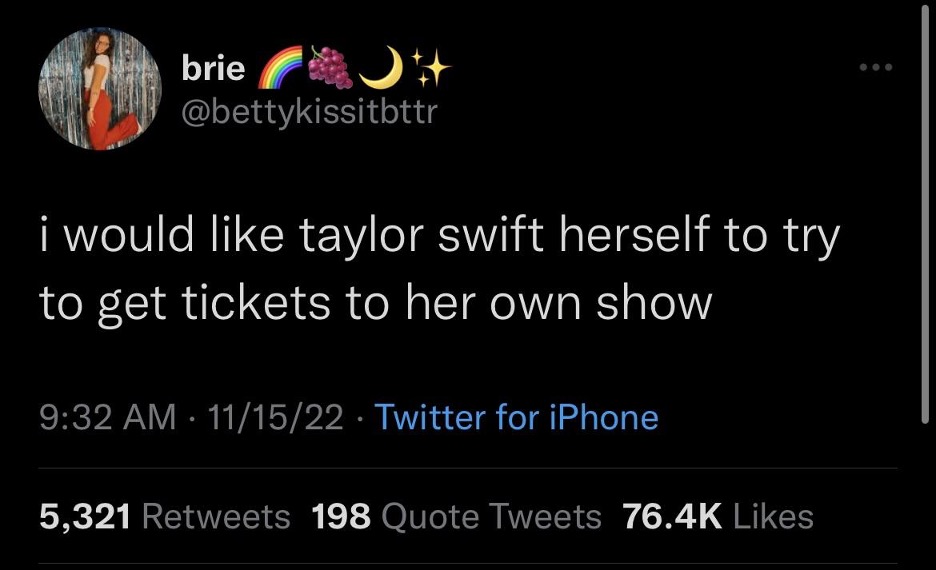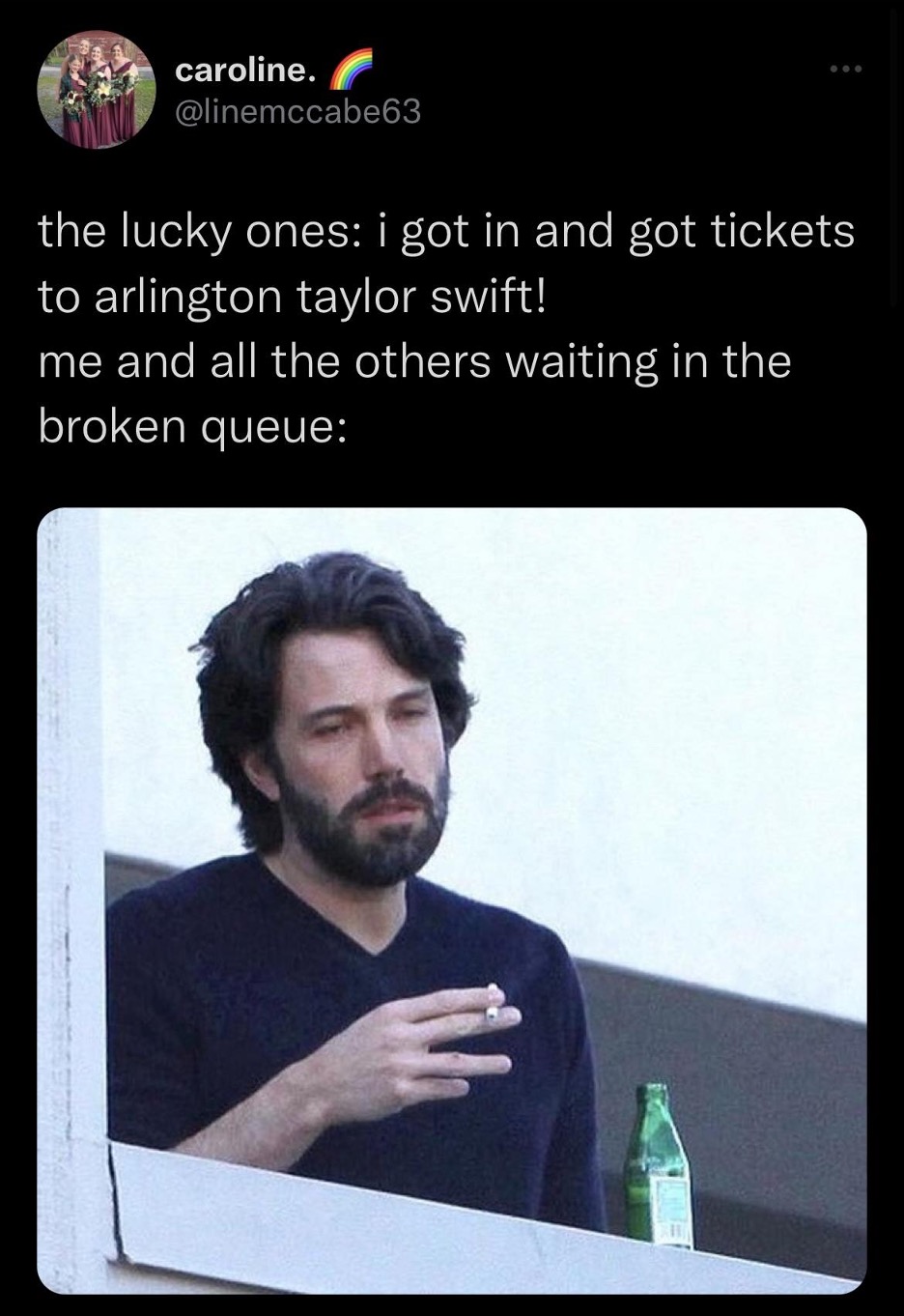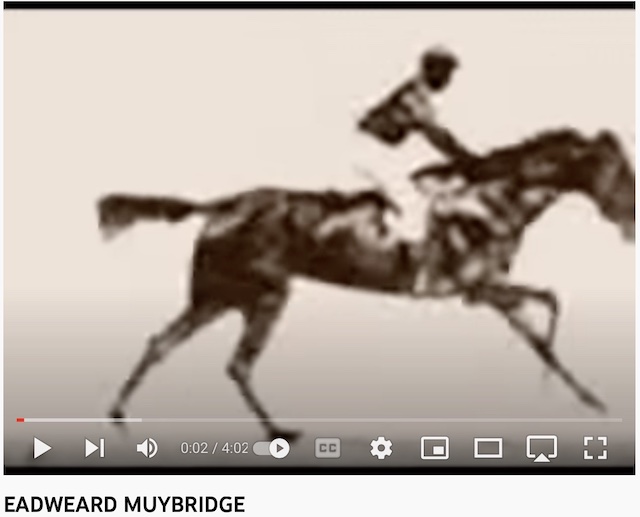Let me start by saying I’m not a Swiftie. I’ve listened to her Folklore album a time or two and viewed her Tiny Desk concert. That’s about it. I first learned about all of the fuss about how Ticketmaster was grossly mishandling the presale of Swift’s concert tickets from a blog post from one of my students last week. I then saw a tweet from PR guru and Twitter friend Kenna Griffin:
My first thought was: I’ve got to try to get Dr. Kenna to do a blog post on the absolute PR disaster Ticketmaster was having with the thousands of unhappy Taylor Swift fans. I was delighted when she said “Yes”!
It also turns out she was one of that crowd of disappointed fans who had presale codes but weren’t able to get tix.
Thanks, Dr. Kenna!
Guest Blog Post
By Dr. Kenna Griffin
It’s Ticketmaster. They’re the antihero, serving up a lesson in how not to run a business.
 If you aren’t sure what I’m talking about, then you haven’t yet been one of the thousands of Taylor Swift fans held hostage by the website while trying to get tickets for the Eras Tour. It’s an experience that caused them and Swift, by proxy, a load of negative PR in the past week.
If you aren’t sure what I’m talking about, then you haven’t yet been one of the thousands of Taylor Swift fans held hostage by the website while trying to get tickets for the Eras Tour. It’s an experience that caused them and Swift, by proxy, a load of negative PR in the past week.
My Ticketmaster Story
My husband deserves a better wife. I came to this conclusion after he waited online for more than six hours to get me Taylor Swift tickets. We didn’t buy tickets in the end.
I, probably like many others, acted with excitement instead of logic when Taylor announced her Eras Tour. I immediately texted my bestie, and we picked out three locations each to try to get approved for. I was ecstatic when I got the email that I was approved for presale. She wasn’t approved. Still, we were stoked about an hour later when I got the text that we had a chance to get tickets for the Kansas City show. KC is within driving distance, meaning we could avoid airfare and budget a bit more for tickets.
Then the drama began. One of us needed to log in to my account at 10 a.m. Wednesday. The problem was that I was presenting a webinar at that time, and my physician friend had patients scheduled. There was no way we could log on until at least 11 a.m. We knew the tickets would be gone by then. Enter my fabulous husband.
He agreed to go online at 10 a.m. and do his best.
Six… hours… later…
The Ticketmaster site repeatedly crashed, leaving people less than thrilled. Ticketmaster sent a few pop-up messages to those waiting online, but they basically just said, “keep waiting, don’t refresh.”
My husband gave up and closed the site at the end of his work day. Then, out of curiosity, he logged back on just to see if he could get in. Yep. He got in immediately. Too bad the only tickets left were at the top of the stadium or behind the stage.
What an epic waste of time!
The PR Nightmare
You’ve likely already heard that we weren’t the only ones who had problems getting tickets. People took to social media with a lot to say about Ticketmaster, their monopoly, and even T. Swift in some cases. Take a look:



Tweet from HuffPost. “Break them up,” the New York Democrat (AOC) urged.

Ticketmaster’s response to the whole debacle looked like this:

Needless to say, fans weren’t having it.

Some fans even called for a do-over.

But many people got tickets, and they’re justifiably thrilled, even though they clearly didn’t enjoy the process.

And how did Taylor respond? After all, it’s her reputation and the full Swiftie experience on the line.
I haven’t seen a thing at the time of writing this post. Nothing. Not a word.
And I’m not the only person less than happy about that.

What Can We Learn?
As the negative publicity continues rolling in and mainstream media are covering the story of the Taylor Swift/Ticketmaster fail, what can we learn from a PR perspective from this situation?
Remember that we’re talking about PR, so we can’t just say that Ticketmaster should know how to do its job. That’s a given.
I have some suggestions:
- Communicate better in the process leading up to presale. Ticketmaster gave many instructions that day, probably because the entire process was confusing. So, ticket seekers went into the whole mess confused from the beginning.
- Be transparent about pricing. I hate this part of the process. You don’t know if you’ll get tickets, and you have no idea how much they’ll be when you get there. What if people waited all day to get on the site only to find that they couldn’t afford the VIP tickets that were left?
- Respond immediately and often. When things went haywire, Ticketmaster should have immediately started communicating what THEY were doing to solve the issues, not what fans needed to do (sit on their computers all day and wait).
- Waive fees (or at least some of them). Ticketmaster is known for tacking fees onto tickets. It’s how they make their money. But when you’re failing at your side of the process, you need to let people know that you’re going to discount or waive those fees.
- Apologize. Ticketmaster should have apologized every step of the way and should still be apologizing.
And as for T. Swift, recognize that you aren’t too big to fail. She should already have communicated with her fans how sorry she was that the process didn’t go the way it was supposed to. And she should be telling them if she plans to do something different with future tours. Remaining silent makes her look like she’s OK with it.
What do you think? What PR lessons can we learn from this? Comment below.

Dr. Kenna Griffin
Dr. Kenna Griffin has been a writer, editor, and educator for more than two decades. She is a self-proclaimed word nerd.
Griffin is the content director for Content Journey. She also is an adjunct journalism and public relations professor. She was a full-time professor and college media adviser for nearly two decades, following a career as a professional journalist.
Griffin has a Ph.D. in journalism from the University of Oklahoma. She researches the relationship between emotional trauma, journalism professionalism, and organizational support.
Contact Dr. Kenna Griffin


 If you aren’t sure what I’m talking about, then you haven’t yet been one of the thousands of Taylor Swift fans held hostage by the website while trying to get tickets for the
If you aren’t sure what I’m talking about, then you haven’t yet been one of the thousands of Taylor Swift fans held hostage by the website while trying to get tickets for the 











